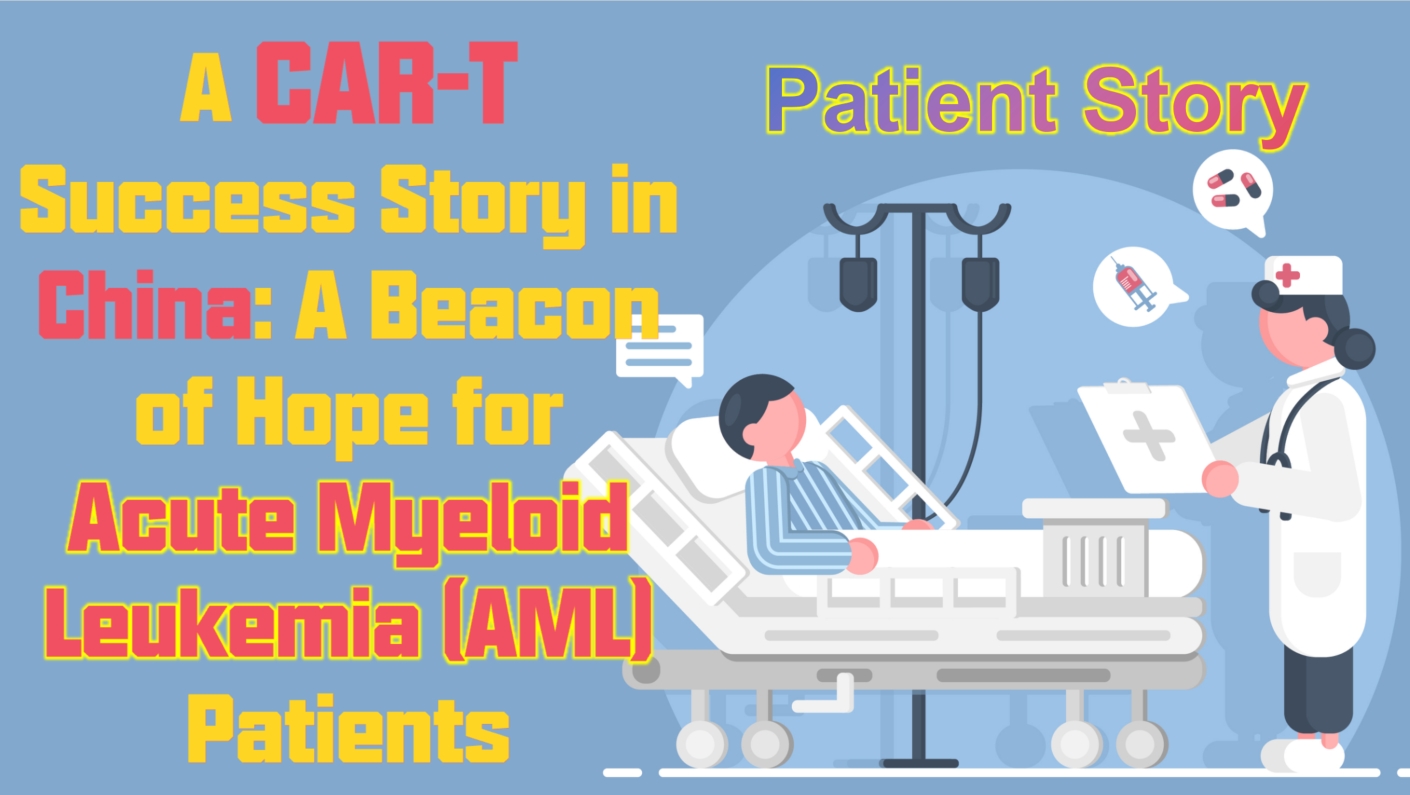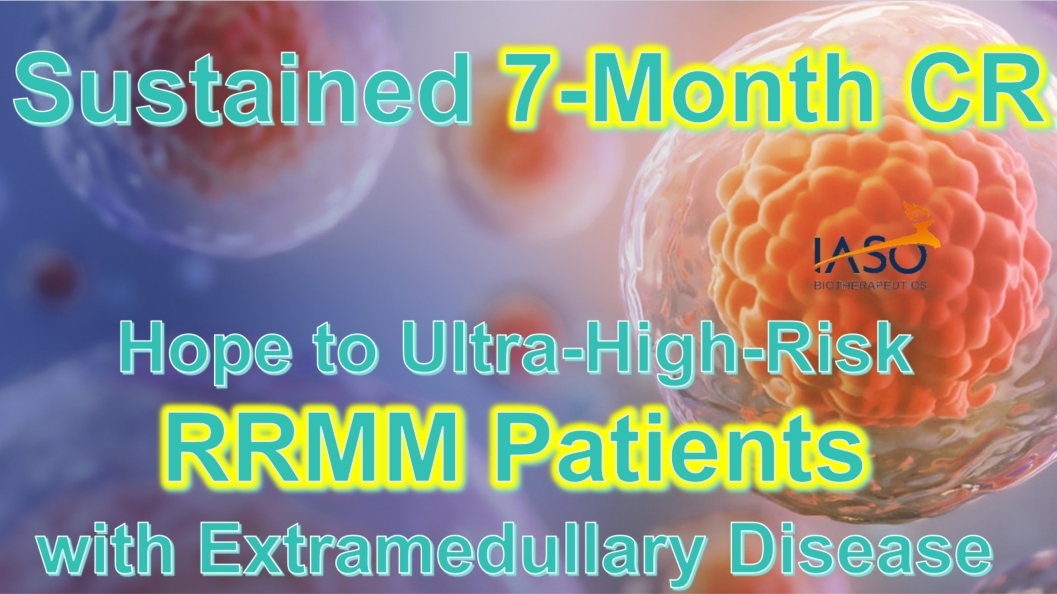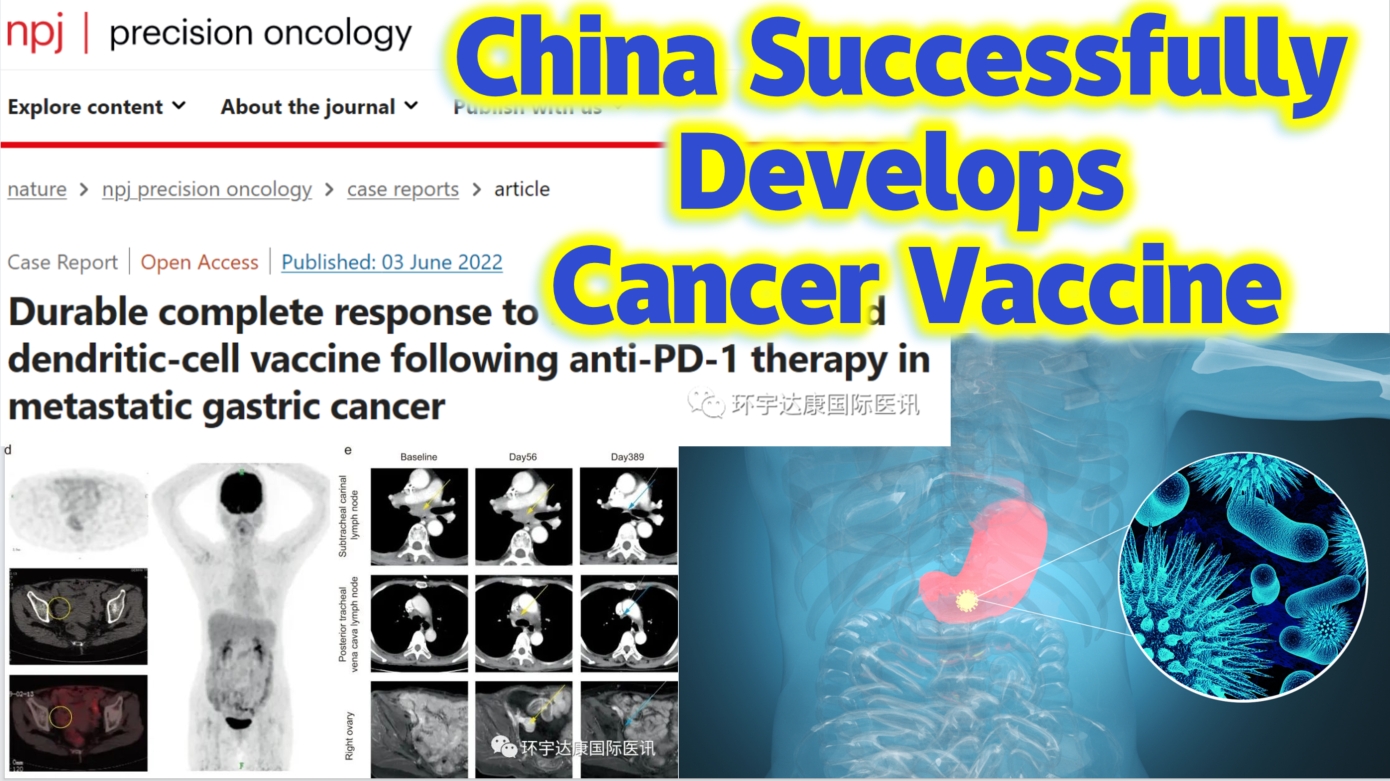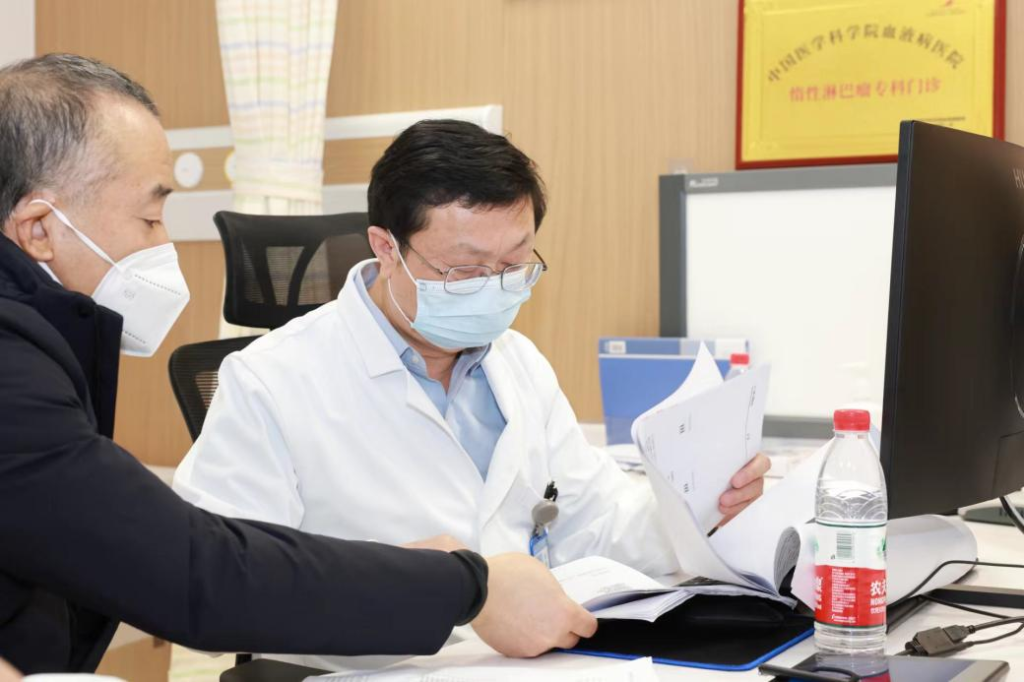Warning: Trying to access array offset on value of type bool in /www/wwwroot/www.medtourcn.com/wp-content/themes/medical-directory/framework/theme/medicaldirectory-image.php on line 78
Warning: Trying to access array offset on value of type bool in /www/wwwroot/www.medtourcn.com/wp-content/themes/medical-directory/framework/theme/medicaldirectory-image.php on line 79

Patient Story: CAR-T Therapy Brings New Hope for Lymphoma Patients – A Case from a Chinese Hospital
**Patient Story: CAR-T Therapy Brings New Hope for Lymphoma Patients – A Case from a Chinese Hospital**

Patient Story
In the field of cancer treatment, China has achieved groundbreaking success with CAR-T cell therapy, especially in treating relapsed or refractory lymphoma. Today, we share the story of one patient whose life was transformed through this revolutionary treatment provided by a leading hospital in China.
## Patient Journey: Diagnosed with Complex Lymphoma
Mr. Li, a 59-year-old man from China with a long history of hypertension, noticed swelling in his right elbow in September 2019. As the swelling worsened over the following months, he sensed that something was seriously wrong. After evaluations at multiple hospitals, he was diagnosed with diffuse large B-cell lymphoma (DLBCL). Complicating matters, genetic testing revealed that he had TP53 and MYD88 mutations, making his case particularly challenging.
At a local hospital, Mr. Li underwent a series of standard treatments, including cyclophosphamide, prednisone, ibrutinib, and rituximab. Initially, his condition improved, but six months later, he began experiencing discomfort in his lower abdomen. Testing confirmed that his lymphoma had relapsed and spread. Multiple rounds of second-line, third-line, and even fourth-line treatments were unable to control his disease.
## Last Hope: China’s CAR-T Therapy Shows Remarkable Effect
With few options left, Mr. Li reached out to our Advanced Medicine in China team as his last hope. Our expert team took on his case, and he was promptly admitted to begin CAR-T cell therapy in China. This innovative treatment involves reprogramming the patient’s own immune cells to recognize and attack cancer cells. Chinese experts created a precise treatment plan for Mr. Li and initiated CAR-T cell infusion.
The treatment response was remarkable. Although Mr. Li experienced a brief period of fever and mild neutropenia following therapy, these symptoms resolved quickly with supportive care. He avoided severe side effects often associated with CAR-T therapy, such as cytokine release syndrome (CRS) and immune effector cell-associated neurotoxicity syndrome (ICANS). A month later, his follow-up scan revealed complete remission (CR). The Chinese CAR-T treatment not only successfully controlled his high-risk lymphoma but also spared him many of the common side effects.
## Expert Insights: A New Option for High-Risk Patients
This case demonstrates the significant effectiveness of China’s CAR-T therapy for patients with high-risk genetic mutations. Our team’s expert professor noted that patients with TP53 mutations, like Mr. Li, often respond poorly to standard first-line treatments but may achieve substantial improvement through CAR-T therapy. For high-risk patients such as Mr. Li, especially those with dual-expression and relapse within 12 months, early CAR-T treatment could yield greater benefits. CAR-T therapy in China may result in prolonged bone marrow suppression, which requires careful monitoring and supportive care based on the patient’s prior chemotherapy history and individual response.
China’s CAR-T therapy is bringing new hope for lymphoma patients around the world. It not only paves a new path in treatment options but also broadens our understanding of lymphoma treatment. By giving patients renewed hope for recovery, we look forward to this technology enabling lasting remission for even more lymphoma patients and offering a brighter future ahead.
🎉🎉To assess whether the condition is suitable for CAR-T therapy, you can submit pathology reports, treatment history, and discharge summaries to the Medical Department of <Advanced Medicine in China> for preliminary evaluation!
WhatsApp: Https://wa.me/+8613717959070
Email: doctor.huang@globecancer.com
#CancerTreatment #RRLymphoma #ChineseMedicalAdvances #Immunotherapy #PatientSuccess #Oncology #HopeForCancer #MedicalBreakthrough #CancerResearch #China
Warning: Trying to access array offset on value of type bool in /www/wwwroot/www.medtourcn.com/wp-content/themes/medical-directory/framework/theme/medicaldirectory-image.php on line 78
Warning: Trying to access array offset on value of type bool in /www/wwwroot/www.medtourcn.com/wp-content/themes/medical-directory/framework/theme/medicaldirectory-image.php on line 79

A CAR-T Success Story in China: A Beacon of Hope for Acute Myeloid Leukemia(AML) Patients
A CAR-T Success Story in China: A Beacon of Hope for Acute Myeloid Leukemia(AML) Patients

patient story
#CAR-T #AcuteMyeloidLeukemia #AML #ChinaHealthcare #patientstory #CD33
In the field of cancer treatment, China’s medical advancements have brought new therapeutic opportunities for patients, especially with CAR-T cell therapy. Although CAR-T has achieved significant success in treating lymphoid tumors, its application in myeloid malignancies, particularly acute myeloid leukemia (AML), has been challenging. However, a recent successful case of CD33 CAR-T therapy in China has ignited hope for patients with refractory relapsed AML.
#### Patient Story
The patient is a 25-year-old Chinese male who initially sought medical attention due to dizziness and fatigue. He was eventually diagnosed with high-risk AML associated with the DEK::CAN fusion gene, which has a very poor prognosis. Despite some initial effectiveness of chemotherapy and undergoing allogeneic hematopoietic stem cell transplantation (Allo-HSCT), the disease relapsed six months later.
After multiple attempts with targeted therapies and donor cell infusions, the results remained unsatisfactory. Just when traditional treatments seemed ineffective and hope was dwindling, the patient sought out my Advanced Medicine in China team.
#### Breakthrough Treatment: China’s CD33 CAR-T
The patient received a consultation and treatment from the medical experts of my Advanced Medicine in China team. After admission and initial preparations, he underwent CD33 CAR-T therapy, an innovative treatment specifically targeting myeloid tumors. After three days of chemotherapy conditioning, the CAR-T cells were infused on day 11. Although there was a mild fever during this period, the patient experienced no significant discomfort. Subsequently, the bone marrow examination revealed astonishing news: leukemia cells had completely disappeared, and the DEK::CAN fusion gene was nearly undetectable, indicating that the disease was in a state of complete remission.
Despite experiencing a lung infection during treatment, the patient’s condition improved after antibiotic therapy. He did not suffer from severe side effects such as persistent cytopenia, and his blood parameters returned to normal. He was ultimately discharged smoothly.
#### Sustained Remission and a Bright Future
Two months after receiving CD33 CAR-T cell therapy, the patient remains in a state of complete molecular remission, with normal blood counts and a significant improvement in quality of life. This case demonstrates that CAR-T therapy not only successfully controlled refractory relapsed AML but also significantly enhanced the patient’s chances of survival and quality of life.
#### A New Chapter for CAR-T Treatment of AML in China
This case highlights China’s innovative capabilities in the field of CAR-T therapy, particularly in the treatment of myeloid malignancies. For AML patients like this young man who have faced multiple treatment failures, China’s CAR-T therapy undoubtedly brings new hope.
Although global CAR-T therapies for myeloid malignancies are still in their infancy, this groundbreaking advancement in China indicates that CAR-T therapy is poised to become a crucial method for treating refractory relapsed AML in the future. As research deepens and technologies mature, this therapy may save more patients in dire circumstances.
China’s leading position in CAR-T treatment is bringing new hope to patients worldwide. For all AML patients, this story proves that the path to a brighter future has been paved, and for many, it begins with China’s CAR-T therapy.
To assess whether the condition is suitable for CAR-T therapy, you can submit pathology reports, treatment history, and discharge summaries to the Medical Department of <Advanced Medicine in China> for preliminary evaluation!
WhatsApp: Https://wa.me/+8613717959070
Email: doctor.huang@globecancer.com
#CancerTreatment #InnovativeTherapy #PatientSuccess #MedicalAdvancements #HopeInHealthcare #Immunotherapy
Warning: Trying to access array offset on value of type bool in /www/wwwroot/www.medtourcn.com/wp-content/themes/medical-directory/framework/theme/medicaldirectory-image.php on line 78
Warning: Trying to access array offset on value of type bool in /www/wwwroot/www.medtourcn.com/wp-content/themes/medical-directory/framework/theme/medicaldirectory-image.php on line 79

Sustained 7-Month CR, Liver Extramedullary Disease Disappearance: Equecabtagene Autoleucel Brings High-Quality Survival Hope to Ultra-High-Risk RRMM Patients with Extramedullary Disease
### Sustained 7-Month CR, Liver Extramedullary Disease Disappearance: Equecabtagene Autoleucel Brings High-Quality Survival Hope to Ultra-High-Risk RRMM Patients with Extramedullary Disease

RRMM Patients
In December 2019, a man in his 50s was diagnosed with multiple myeloma (MM) at a hospital in Shenzhen, China. The patient had high-risk cytogenetic abnormalities (17p deletion) and underwent various treatments over more than three years, including proteasome inhibitors (PIs), immunomodulatory drugs (IMiDs), and CD38 monoclonal antibodies. Despite these treatments, the patient experienced a second relapse. This relapse was characterized by a P53 gene mutation and liver extramedullary invasion, classifying it as an ultra-high-risk situation. Although the patient initially refused an autologous stem cell transplant (ASCT), he was eventually persuaded to collect sufficient stem cells. However, due to concerns about the side effects of high-dose chemotherapy, he opted for CAR-T therapy.
### Personalized Treatment: From ASCT to CAR-T Therapy
Under the care of Professor Chen’s team at the hospital, the patient was evaluated for CAR-T therapy. Despite the risks, he underwent the treatment and showed significant improvement. As of March 2024, he has maintained a complete response (CR) for seven months, with PET/CT scans indicating the disappearance of liver extramedullary disease.
#### Patient Background
– **Age**: 54
– **Initial Symptoms**: Back pain after exercise
– **Diagnosis**: Multiple Myeloma (IgA κ type, DS I A stage, ISS I stage, R-ISS II stage, mSMART high-risk)
### Treatment Journey
– **2019**: Diagnosed with MM; high-risk cytogenetic abnormality (17p deletion)
– **2020-2022**: Treated with PIs, IMiDs, and CD38 monoclonal antibodies
– **Early 2023**: Second relapse with P53 mutation and liver extramedullary disease
– **July 2023**: Stem cell collection for ASCT
– **August 2023**: Initiated CAR-T cell (Equecabtagene Autoleucel) therapy
– **September 2023**: Discharged with strict complete response (sCR)
– **March 2024**: PET/CT scan confirms sustained complete response (CR) with no liver lesions
### Breakthrough Results and Future Prospects
CAR-T therapy has emerged as a promising treatment for relapsed and refractory multiple myeloma (RRMM), especially for patients resistant to conventional therapies. This case highlights the importance of personalized treatment plans, considering disease factors, previous treatment outcomes, and patient preferences. Equecabtagene Autoleucel (IKEA-Lunsay) CAR-T therapy has given this high-risk patient a new lease on life and holds the potential to offer hope to many more MM patients in China.
By showcasing such success stories, we aim to raise awareness about the advancements in CAR-T therapy and its significant impact on improving the quality of life for MM patients. This breakthrough not only marks a significant achievement for the hospital but also signals a new era of hope for countless MM patients.
🎉🎉To assess whether the condition is suitable for CAR-T or clinic therapy, you can submit Advanced Medicine in China for preliminary evaluation!
WhatsApp: +8613717959070
Email: doctor.huang@globecancer.com
#MedicalBreakthrough #CARTTherapy #MultipleMyeloma #CancerTreatment #PatientSuccess #HealthcareInnovation #CancerResearch #MMTreatment #LifeSavingTherapies #MedicalAdvancements #HealthcareHeroes #InnovativeMedicine #CancerCare #HopeForMM #CancerAwareness
Warning: Trying to access array offset on value of type bool in /www/wwwroot/www.medtourcn.com/wp-content/themes/medical-directory/framework/theme/medicaldirectory-image.php on line 78
Warning: Trying to access array offset on value of type bool in /www/wwwroot/www.medtourcn.com/wp-content/themes/medical-directory/framework/theme/medicaldirectory-image.php on line 79

Tumors Vanish After One Year of Treatment! The First Advanced Gastric Cancer Patient to Receive the New Cancer Vaccine Achieves Lasting Remission
**Tumors Vanish After One Year of Treatment! The First Advanced #GastricCancer Patient to Receive the New #Cancer Vaccine Achieves Lasting Remission**

Cancer Vaccine
Mrs. Liu, who was battling advanced gastric cancer, never imagined that one year ago, she was on the brink of death due to chemotherapy, with her disease progressing rapidly and cancer spreading throughout her body… Later, she won the “lottery” of her life. She received one of the world’s most advanced immunotherapies—cancer vaccines—in Fujian. One year later, all her cancer lesions have completely disappeared! Her successful case was even published in a prominent international journal, a Nature sub-journal, causing a huge sensation.
**First Advanced Gastric Cancer Patient to Receive the New Cancer Vaccine Achieves Lasting Remission! Tumors Vanish After One Year of Treatment**
In July 2017, 66-year-old Mrs. Liu was unfortunately diagnosed with stage IV gastric cancer. After surgery, she underwent FOLFOX chemotherapy to eliminate residual cancer cells, and everything seemed to be going well. Unfortunately, just eight months later, Mrs. Liu’s cancer recurred, and multiple lesions were found not only in her stomach but also in her peritoneum and lymph nodes, indicating that the cancer had rapidly spread throughout her body. Mrs. Liu had to undergo chemotherapy again. However, this time, her body could no longer withstand the side effects. After two cycles of Nab-paclitaxel, she was on the brink of death due to severe side effects and had to stop chemotherapy.
When she and her family were in despair, the doctors brought them good news. A nationally renowned cancer center was conducting a clinical trial of a cancer vaccine. Remarkably, this new type of cancer vaccine was a hot topic of research worldwide and had achieved significant breakthroughs.
The new cancer vaccine is a personalized, neoantigen-loaded monocyte-derived dendritic cell vaccine, known as Neo-MoDC. This vaccine fully mobilizes the immune system: dendritic cells (DCs) recognize cancer antigens, present antigens to activate T cells, promote T cell enrichment, and mobilize T cells to eliminate cancer cells, ultimately launching a series of precise and powerful attacks on cancer cells throughout the body.
Mrs. Liu decided to participate in the clinical trial of this new therapy.
This new therapy is actually much more complex than described above. Doctors first performed whole-exome sequencing on her tumor tissue samples, identifying 1,096 somatic non-synonymous mutations. They then determined her HLA (human leukocyte antigen) types as HLA-A02:07, HLA-A24:02, HLA-B40:01, HLA-B46:01, HLA-C01:02, and HLA-C03:04. Based on the binding affinity of these predicted mutant peptides with the patient’s HLA I class alleles, eight soluble mutant epitopes with the highest affinity were identified to prepare a personalized neoantigen dendritic cell cancer vaccine specifically targeting her cancer cells.
Mrs. Liu successfully received two months of subcutaneous Neo-MoDC vaccine injections to activate the T cell anti-tumor immune response. Researchers confirmed that the Neo-MoDC vaccine successfully induced a neoantigen-specific T cell response. For better therapeutic results, from day 65, Mrs. Liu received nivolumab (PD-1) treatment every 14 days.
An unexpected surprise occurred.
Five days later, Mrs. Liu’s CA-125 level rapidly dropped from 596 to 64 U/ml;
Two weeks later, malignant ascites disappeared, and clinical imaging showed a 30% reduction in the volume of metastatic supraclavicular lymph nodes;
Two months later, all metastatic lymph nodes reduced to less than 1 cm, and evaluations showed complete remission (CR) in the lymph nodes, with a 20% reduction in the longest diameter of ovarian metastatic lesions.
On the 231st day after the initial vaccination, imaging showed complete regression of all lesions;
On the 389th day of combined treatment, a CT scan showed that the ovarian metastatic lesions had also completely disappeared;
Subsequent CT scans confirmed that by the time of the paper’s publication (October 2021), complete regression had lasted for over 25 months.
This result indicates that the neoantigen vaccine Neo-MoDC and PD-1 in combination therapy may enhance each other’s efficacy, achieving better treatment outcomes, and providing a new immunotherapy combination for metastatic gastric cancer and other tumor types.
Mrs. Liu said that after the failure of chemotherapy, she was in despair, counting down the days of her life. She couldn’t imagine that she would have the opportunity to receive such cutting-edge therapy in China, let alone believe that she would become the fortunate one in this milestone research, successfully defeating cancer and returning to normal life!
In June 2022, this study was published in a prominent international journal, a Nature sub-journal, marking the first known case of complete and lasting tumor regression in gastric cancer through neoantigen-based DC vaccine and PD-1 therapy, which is of milestone significance!
**Cancer Vaccines Will Ultimately Become a Sword Against Cancer!**
Throughout the long history of humanity, various vaccines have been developed to combat devastating diseases, leading to the eradication of deadly diseases like smallpox and poliomyelitis. Similarly, the medical community is actively developing various vaccines to fight cancer, hoping to awaken our immune system to recognize and kill cancer cells upon injection, and to generate immune memory responses that protect us continuously, attacking any emerging cancer cells before they form tumors. This vision will eventually become a reality!
Immunotherapy is hailed as the hope for conquering cancer. Whether it’s the currently approved PD-1 immune checkpoint inhibitor therapy for various cancers, adoptive cell immunotherapy represented by CAR-T, or numerous cancer vaccines under development, they represent just the tip of the iceberg in immunology. Researchers are uncovering more information from this iceberg, learning how to control immune responses, and using these therapeutic approaches in clinical practice to benefit patients, giving us increasing hope for survival. The hope for conquering cancer may lie within these advances. We look forward to more breakthroughs in immunotherapy, bringing more miracles to cancer patients.

 To assess whether the condition is suitable for New Cancer Vaccine or clinic therapy, you can submit Advanced Medicine in China for preliminary evaluation!
To assess whether the condition is suitable for New Cancer Vaccine or clinic therapy, you can submit Advanced Medicine in China for preliminary evaluation!
WhatsApp: 137 1795 9070
Email: doctor.huang@globecancer.com
#CancerVaccine #StomachCancer #Immunotherapy #CancerResearch #MedicalBreakthrough #CancerTreatment #HealthcareInnovation #PatientSuccess #Oncology #MedicalAdvancements
Warning: Trying to access array offset on value of type bool in /www/wwwroot/www.medtourcn.com/wp-content/themes/medical-directory/framework/theme/medicaldirectory-image.php on line 78
Warning: Trying to access array offset on value of type bool in /www/wwwroot/www.medtourcn.com/wp-content/themes/medical-directory/framework/theme/medicaldirectory-image.php on line 79

One Year After Approval: How Effective is China’s First BCMA-Targeted CAR-T Therapy in Treating Multiple Myeloma?
### One Year After Approval: How Effective is China’s First BCMA-Targeted CAR-T Therapy in Treating Multiple Myeloma?

Multiple Myeloma
